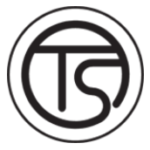Art. 7 of the Occupational Safety and Health Act of the Republic of Taiwan stipulates that explosive products must be tested by an authority and provided with a “test stamp” (the “TS Mark”, Type Safety). A laboratory in the Industrial Technology Research Institute (Explosions Protection Test Laboratory) is accredited by the Taiwan Accreditation Foundation (TAF) and nominated by the Ministry of Labour (MOL) to carry out this ITRI certification according to the Taiwanese CNS standards (Chinese National Standard).
The regulations are designed so that a product is always subject to testing if there is an IEC standard for it, regardless of Taiwanese standards. This ensures that despite a potential lack of Taiwanese standard, the safety of products used in Taiwan is still guaranteed.
Explosion-proof luminaires, electric motors and control panels must be compulsorily tested according to Taiwanese CNS standards in order to be certified. All other explosion-proof products can be verified by both local testing and review of existing IECEx or ATEX test reports.
The most important facts about ITRI certification
- Company licences manufacturer and certificate holder (if different from manufacturer);
- Detailed product description (function and design) with drawing;
- ATEX or IECEx certificates and test reports;
- QAR/QAN;
- application form;
- supporting documentation.
- Application documents: 1-4 months depending on customer.
- Product testing in Taiwan*: 1 month
- Certificate: 2-4 weeks
- Product marking: depending on customer
- *so far, only explosion-proof luminaires, electric motors and control panels have to be compulsorily tested in Taiwan, for all other products existing ATEX/IECEx test reports can be submitted.
- if no ATEX/ICEx certificates and test reports are available, the production must be audited and the product tested in Taiwan.
- Application costs: from ~1000 €
- Test fees: from ~200 €
- Audit fees, if applicable: from ~1500 €
- Consultation and translation: 1000 €
- Each product has different testing fees, for some these costs can reach high four-digit ranges in total.
- the review of existing test reports costs at least 30% of the actual test costs. The above example assumes existing test reports.
- in the absence of existing test reports, testing and auditing must be carried out in Taiwan, which entails not inconsiderable additional costs.
What is ITRI certification for?
ITRI certification has its own standards, but also refers to international IEC standards, and IEC standards even take precedence over Taiwanese standards (Chinese National Standard, CNS). This is to ensure that the safety of explosive products is guaranteed even if no valid Taiwanese standard exists for them.
Regardless of which standard the certification is based on, the Industrial Technology Research Institute (ITRI) issues the certification in all cases. This also means that every product that falls under an IEC standard must also be tested in Taiwan.
The following table gives an overview of the products concerned:
| Protection type | Predefined standards | Reference to corresponding international IEC standards |
|---|---|---|
| General requirements for equipment | CNS 3376-0 / C 1038-0 | IEC 60079-0:2011 Ed. 6.0 |
| Pressure-resistant and explosion-proof outer jacket (Ex d) | CNS 3376-1 / C 1038-1 | IEC 60079-1:2007 Ed. 6.0 |
| Pressurised enclosure Ex p | CNS 3376-2 / C 1038-2 | IEC 60079-2:2007 Ed. 5.0 |
| Powder filling (Ex q) | IEC 60079-5:2007 Ed. 3.0 | |
| Oil immersion Ex o | CNS 3376-6 / C1038-6 | IEC 60079-6:2007 Ed. 3.0 |
| Increased safety Ex e | CNS 3376-7 / C 1038-7 | IEC 60079-7:2006 Ed. 4.0 |
| Intrinsically safe (Ex i) | IEC 60079-11 : 2011 Ed. 6.0 | |
| Type of protection, “n” (Ex n) | IEC 60079-15 : 2010 Ed. 4.0 | |
| Die-casting Ex m | CNS 3376-18 / C 1038-18 | IEC 60079-18 : 2009 Ed. 3.0 |
| Dust ignition enclosure “t” (Ex t) | IEC 60079-31 : 2013 Ed. 2.0 | |
| Dust ignition protection (Ex tD) | IEC 60079-31 | |
| Pressure housing (Ex pD) | IEC 60079-2 Pressurised enclosure “p” (6th edition, 2014) | |
How does the ITRI certification process work?
The complete certification process is as follows:
- Submit application documents (at this point final costs can only be calculated to a limited extent).
After reviewing the documents, testing costs can be accurately assessed. - Product tests in Taiwan.
- If necessary, a factory inspection is requested.
- Issue of certificate.
- Marking.
- Registration in ITRI database online –> project is completed.
However, as described above, in most cases the verification of existing ATEX or IECEx certificates and test reports can take the place of product testing in Taiwan and a factory inspection. However, it is up to the authority to recognise these certificates and test reports and at least 30% of the normal testing fees will still apply.
Explosion-proof luminaires, electric motors and switchboards must always be tested in a Taiwanese laboratory. Manufacturers receive a certificate from ITRI after successful testing and must then mark with one of these two ITRI markings:

Type Verification Approval Label

Safety Label
Frequent mistakes
There are errors in the application documents
The ITRI authority also has formal requirements that must be observed.
The products do not comply with the standards
When IEC standards are updated, an updated existing certificate must also be submitted.
The products are not marked
The marking is mandatory and it must be the correct one of the two logos.
